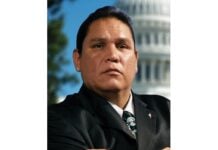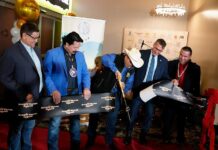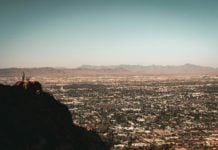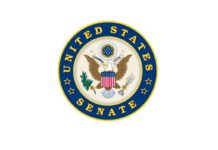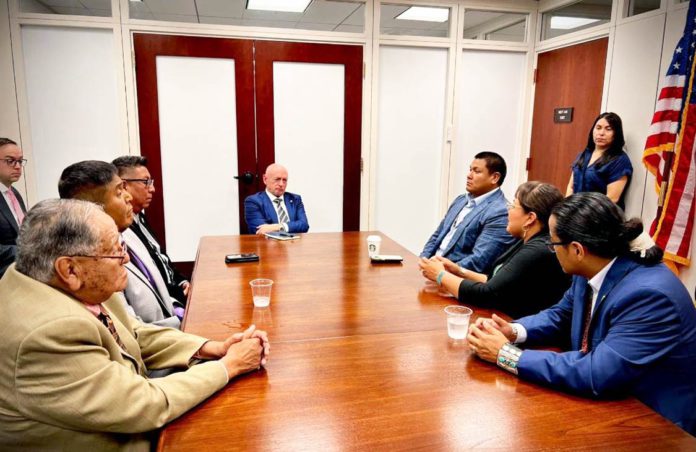
WASHINGTON, D.C. – Arizona’s two U.S. senators and four members of Congress introduced legislation to authorize the country’s largest Indian water rights settlement, which resolves water claims by the Navajo, Hopi and San Juan Southern Paiute nations.
Senator Mark Kelly (D-Z), Senator Kyrsten Sinema (I-AZ), Representative Juan Ciscomani (R-AZ), Congressman Greg Stanton (D-AZ), Congressman David Schweikert (R-AZ) and Congressman Raúl Grijalva (D-AZ) introduced the Northeastern Arizona Indian Water Rights Settlement Act, a historic bill that will make desperately needed drinking water available to thousands of Navajo people for the first time.
“This legislation and the settlement it ratifies represent a historic step forward in resolving a decades-long water rights dispute, providing certainty and stability for the Navajo Nation, Hopi Tribe, and the San Juan Southern Paiute Tribe,” said Arizona Senator Mark Kelly. “Securing water rights for these tribes upholds their sovereignty and lays the path for their growth and prosperity through increased investment in water infrastructure. Ratifying this settlement honors our commitment to the tribes and helps secure our state’s water future, and we’ll work together as Republicans and Democrats to get it done.”
“The Northeastern Arizona Indian Water Rights Settlement Agreement and this legislation, which I am proud to introduce, will provide a long-lasting partnership between our state and Navajo Nation, Hopi Tribe, and the San Juan Southern Paiute Tribe,” said Arizona Representative Juan Ciscomani. “This not only gives much-needed certainty to the tribes, but allows Arizona to better plan for a secure water future while providing for improved water infrastructure throughout the region.”
The settlement will resolve the most significant outstanding water claims within Arizona. After decades of negotiations, Navajo Nation leaders applaud this milestone and are expressing appreciation and thanks to congressional leaders for introducing the legislation.
“For too long our Navajo people have lived without piped water in their homes, and to this day many of our elders are still hauling water over 30 miles round trip,” said Navajo Nation President Buu Nygren. “More than 30 percent of the homes on the Navajo Nation lack running water. This is unacceptable.”
Nygren said no one in America should be denied access to water because of where they live. The Navajo people deserve to have their right to the water that flows along their border and below their land fulfilled on parity with everyone else in this country. He called the settlement a pathway “to ensure an equal opportunity for health and prosperity for the three Indigenous nations that are parties to the settlement.”
The bill authorizes $5 billion in federal funding for water infrastructure on the sovereign territories of the Navajo Nation, the Hopi Tribe, and the San Juan Southern Paiute Tribe. If authorized by Congress, infrastructure constructed on the Navajo Nation, funded by the legislation, will bring substantial clean, safe and reliable drinking water to Navajo communities in Arizona. This will make possible the connection of tens of thousands of Navajo people in Arizona to piped water in their homes for the first time ever.
“The Navajo Nation appreciates that the costs of the settlement are significant,” said Navajo Nation Council Speaker Crystalyne Curley. “But so are the water development and infrastructure needs on our Nation. Water is life, and as Diné, we don’t place a price tag on life. As we saw in recent years, our people are disproportionately impacted by health disparities because of the limited access to water in our homes and communities. The Navajo Nation needs this water to pursue development at every leve. Whether it is to grow our communities or sustain future generations.”
The Northeastern Arizona Indian Water Rights Settlement Act quantifies the Navajo Nation’s water rights in the Upper Colorado River Basin, the Lower Colorado River Basin and the Little Colorado River Basin. It provides certainty to all water users in those basins. Under the terms of the settlement, the Navajo Nation will have the right to substantial amounts of Colorado River water from the State of Arizona’s Upper Colorado River Basin allocation and some from its Lower Colorado River Basin allocation.














